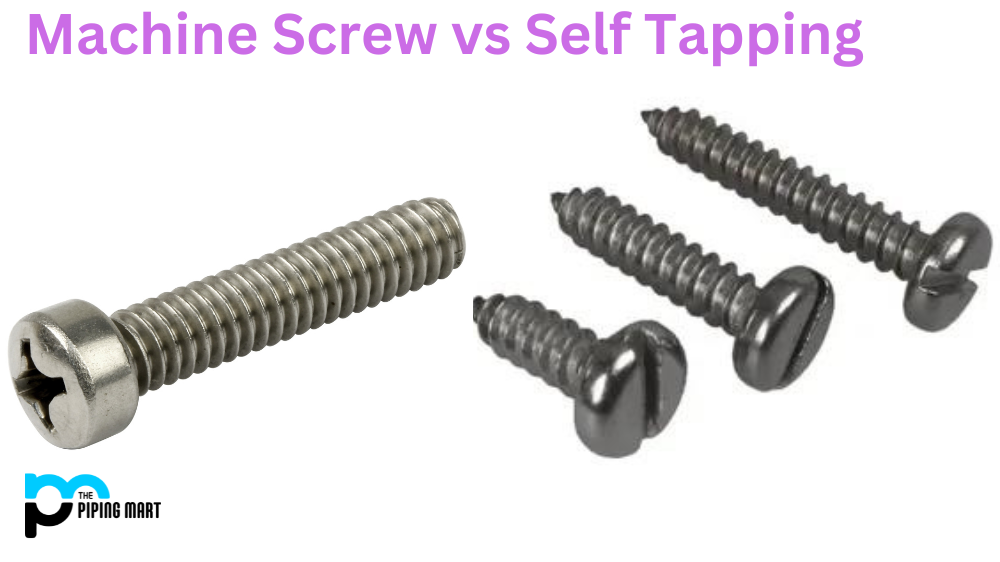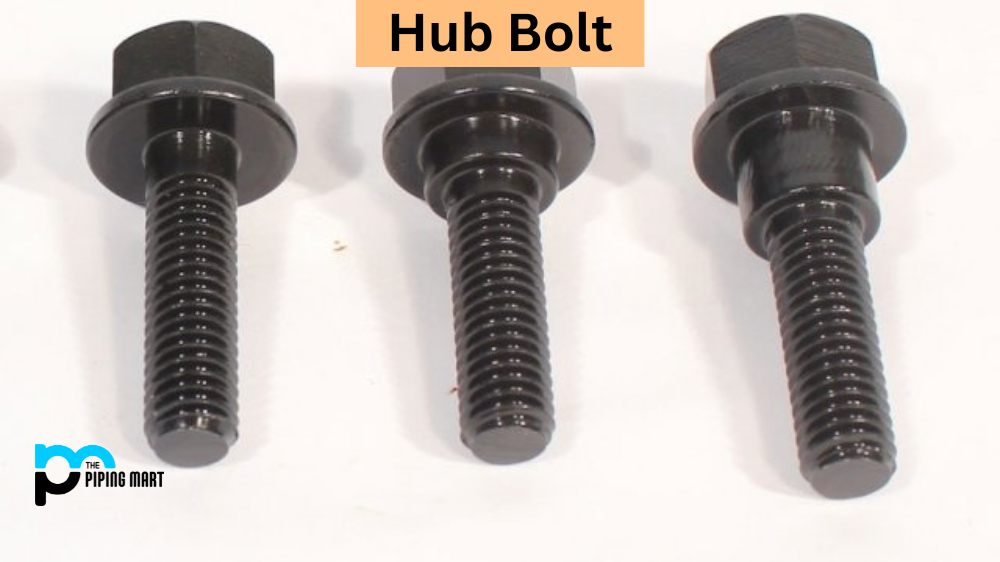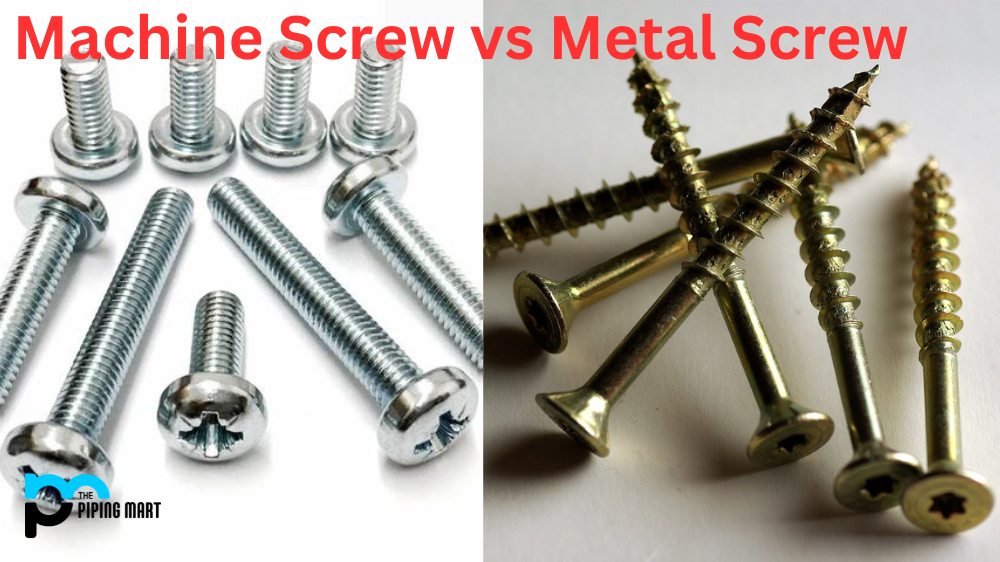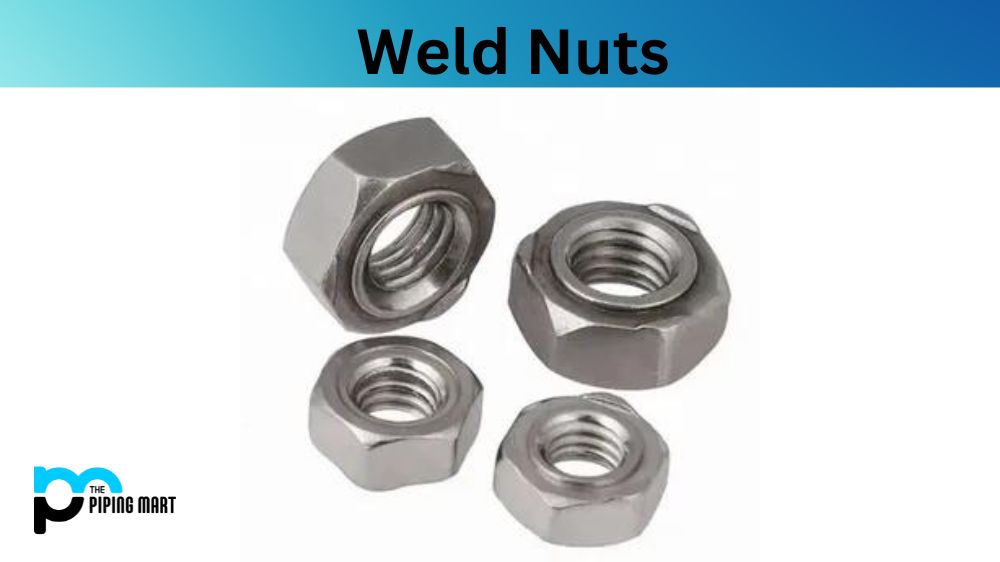Screws are perhaps one of the most versatile and commonly used fasteners in DIY, construction, and fabrication. They can be found in various sizes, materials, and configurations, making choosing the right one for your project challenging. Two types of screws that are often compared are machine screws and self-tapping screws. While they may appear similar in many ways, they differ significantly in their applications. In this blog post, we’ll explore the differences, pros, and cons of each screw type and help you decide which is best for your project.
Difference Between Machine Screw and Self Tapping
Machine Screws
Machine screws are typically uniform in their width and thread size. They are designed with a pre-made threaded hole or nut to create a durable, tight connection. Machine screws come in various head styles, including flat, pan, and oval, and they can be made from different materials like stainless steel, brass, and aluminium. Primarily, machine screws are used in industrial applications, such as electronics, construction, and machinery.
Advantages of Machine Screws
- Provide a robust and reliable connection.
- Available in various head styles and materials.
- Does not require the screw to ‘tap’ the material, reducing the risk of stripping or damaging the threads.
- Ideal for high-stress environments as machine screw connections are resistant to vibration and loosening.
Disadvantages of Machine Screws
- Require pre-existing threaded holes or nuts, which limits their versatility.
- Installing can be challenging, as machine screws tend to bind or seize.
- Require nuts or washers to be screwed onto the other end to secure the connection.
- They can be more expensive than self-tapping screws.
Self-Tapping Screws
Self-tapping screws are designed to create their threads when screwed into the material. They have sharp points and ridges that cut through the surface, creating a line as they’re screwed in. Self-tapping screws come in different styles, including sheet metal, thread-cutting, and wood. They are widely used in the construction, woodworking, and automotive industries.
Advantages of Self-Tapping Screws
- They are more versatile and do not require pre-existing threaded holes or nuts.
- They are easier to install as they can make their threads within the material.
- Typically less expensive than machine screws.
- Ideal for low-stress environments.
Disadvantages of Self-Tapping Screws
- It can strip or damage threads if the material’s density is too high.
- Tend to loosen over time due to vibrations or wear and tear.
- They are less resistant to high-stress and heavy loads, making them unsuitable for industrial applications.
- Require more torque on the screwdriver or drill to create their threads, which can be hard on the material.
Conclusion
When choosing between machine screws and self-tapping screws, it’s critical to consider the application, the material, and the level of stress that the connection will undergo. Machine screws are typically used in industrial environments where durability and strength are essential, while self-tapping screws are more versatile and suitable for low-stress applications. Choosing between these screw types comes down to your project’s specific requirements. If you’re unsure which type of screw to use, consult a professional or conduct further research to make an informed decision.

Meet Bhavesh, a seasoned blogger with a wealth of knowledge and experience. From metal products manufacturing to retail, Bhavesh has a diverse background in various industries and is dedicated to sharing his insights and expertise with readers.




